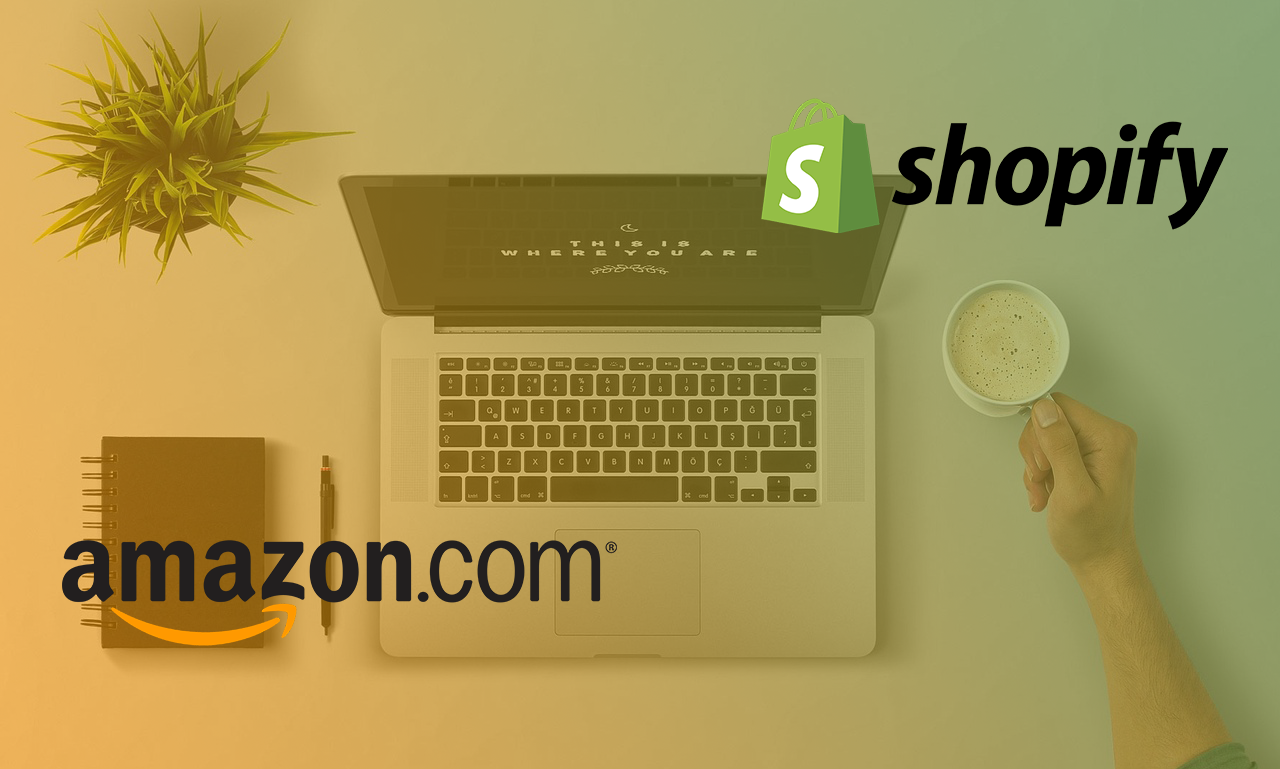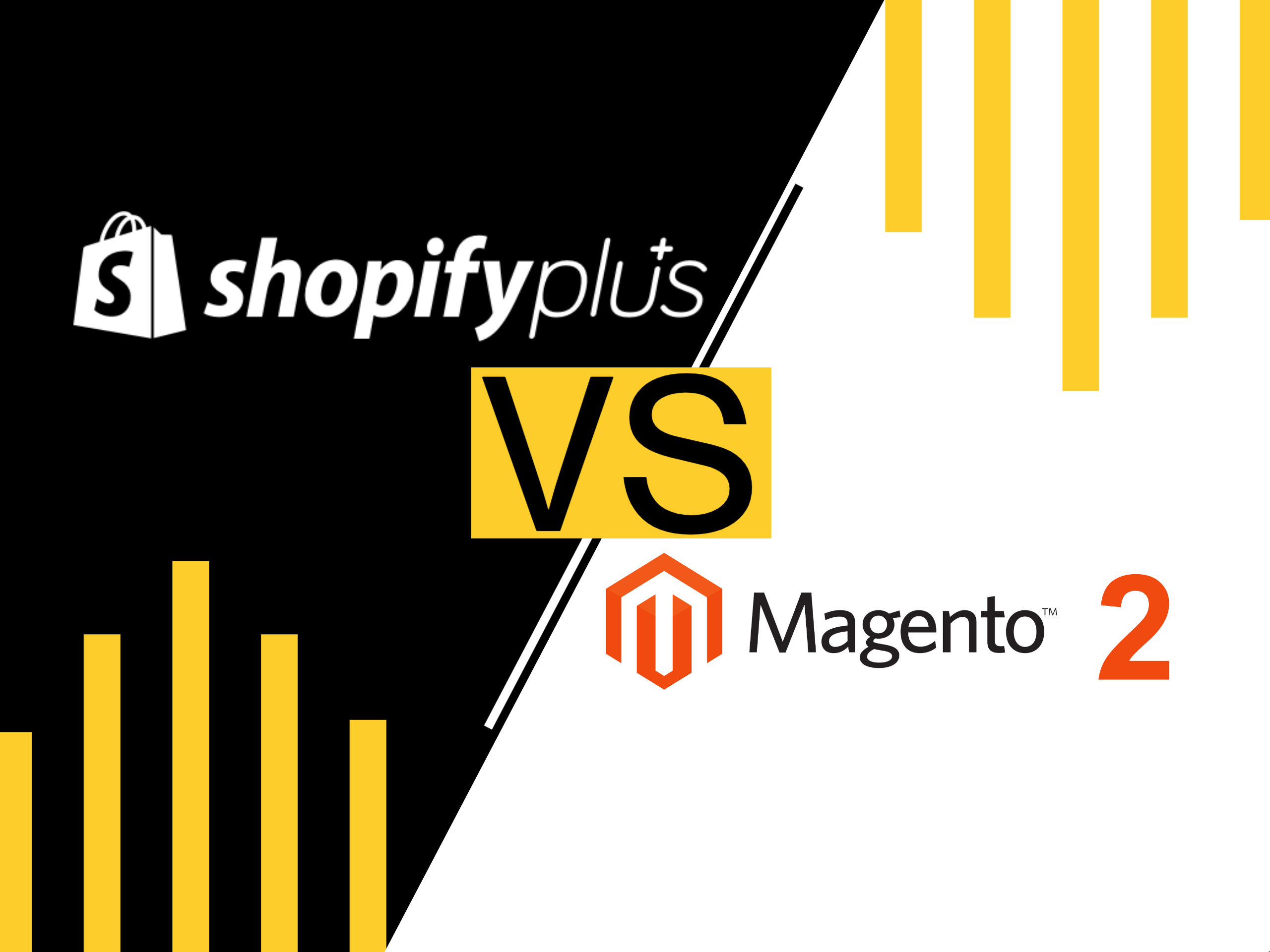What's the Difference Between Amazon and Shopify?
At first glance, the main disparity between Amazon and Shopify appears crystal clear: Amazon is a ready-made online marketplace, while Shopify empowers you to design and build your online store from the ground up. In essence, Amazon provides a direct pipeline to millions of potential customers worldwide, while Shopify offers you the tools to create a unique web-store experience. This initial distinction might seem straightforward, but it carries significant implications.
Accessing Amazon's vast customer base, however, comes at a cost. Amazon levies a percentage of every sale, and sellers must abide by Amazon's rules and regulations. In contrast, Shopify, although requiring self-driven marketing efforts, allows you to retain a larger portion of your sales profit. Thus, the choice between Amazon and Shopify isn't a straightforward one-size-fits-all decision.
The Pros and Cons of Selling on Shopify
Shopify is a renowned e-commerce platform, known for its user-friendliness and versatile design features. It offers an ideal starting point for entrepreneurs, even those with minimal technical expertise. Here are some of the pros and cons of choosing Shopify:
Pros of Selling on Shopify:
Low initial cost: You pay only £1/month for the first 3 months. There is also a 3-day free trial to see whether the platform is right for you.
Ease of use: Shopify is beginner-friendly and easy to navigate.
Flexible design: Customisable templates and designs for your online shop.
Affordability: Reasonable pricing plans to build your online business.
Ownership: You have full control over your store.
Access to powerful tools: Shopify offers a range of e-commerce tools and apps.
Brand identity: Create a unique brand identity from the outset.
Mobile-friendly: Your store is optimized for mobile users.
Cons of Selling on Shopify:
Marketing responsibility: You need to handle marketing yourself.
Potential marketing costs: Marketing can become a significant expense.
No ready-made reputation: You won't benefit from Amazon's established reputation.
Additional app costs: Monthly fees may accumulate if you use add-on apps.
Basic plan limitations: Limited access to reports with the basic plan.
Transaction fees: If you use a third-party payment provider, additional transaction fees apply.
In summary, Shopify offers a flexible and affordable platform with a range of tools, making it suitable for entrepreneurs willing to invest time and effort in building their brand and marketing their products.
The Pros and Cons of Selling on Amazon FBA
Amazon, with its immense reach and convenience, is a strong contender. Let's explore the pros and cons of selling on Amazon FBA:
Pros of Selling on Amazon FBA:
Flexible starting plans: You can start with plans where you pay only when you sell.
Instant global audience: Tap into Amazon's massive customer base.
Ready-made reputation: Benefit from Amazon's established brand.
Quick setup: List and sell products swiftly.
Customer service: Amazon handles customer service, returns, and refunds.
Sales reports: Access data on your sales performance.
FBA service: Fulfilment by Amazon streamlines the process.
Cons of Selling on Amazon FBA:
Fees: Pay a high percentage of your sales to Amazon (15% - 40%).
Adherence to Amazon's rules: Stricter regulations and potential suspension.
Market saturation: Highly competitive in certain categories.
Limited store control: Little control over your store page.
Cumbersome set-up: The interface is not that intuitive and you may struggle with essential settings.
No design options: Limited customization compared to Shopify.
Competitive undercutting: Rival sellers may undercut your prices.
Easy and efficient paid marketing: Amazon offers paid marketing options that are easy to set up and understand.
Amazon's fees, coupled with market saturation and limited control, may deter some sellers. However, the platform provides unparalleled access to a vast customer base.
Amazon Fees vs. Shopify Fees
When comparing Amazon vs Shopify, fees play a pivotal role in your decision-making process. Profit is essential, and the platform's pricing structure can significantly impact your bottom line.
Amazon Pro account costs £25 + VAT per month, with selling fees ranging from 15% or higher, depending on the product category. If you opt for FBA, the costs include storage and fulfillment expenses, resulting in even higher fees.
Shopify offers three primary pricing plans: Basic at $29 per month, Shopify at $79 per month, and Advanced Shopify at $299 per month. The Basic plan, similar in cost to Amazon, includes essential features. Additional charges may apply if you use paid apps. However, Shopify payments eliminate transaction fees, making it an attractive option.
Shopify may be a better option for established brands, whilst Amazon could be a great starting point for those who sell highly competitive items and don’t have big marketing budgets.
In summary, while Amazon can have lower upfront costs, Shopify provides transparency with minimal fees, particularly if you use Shopify Payments.
Which is Right for My Business: Amazon vs Shopify
The million-dollar question remains: which platform is right for your business? Both Amazon and Shopify offer distinct advantages and disadvantages tailored to different business models.
Amazon's existing audience is a compelling draw, and FBA simplifies operations. However, fees, market competition, and limitations on store control should be weighed carefully. Additionally, adhering to Amazon's stringent rules can be restrictive.
Shopify grants complete ownership of your online store, allowing for customization and branding. Fees are reasonable, but success hinges on your marketing efforts, which can be time-consuming and costly. Managing storage, fulfillment, and customer service is also part of the package.
Consider your time availability, control preferences, marketing capabilities, and growth aspirations when making your choice. It's also worth exploring integration options, as using both Amazon and Shopify simultaneously can diversify your sales channels and mitigate risks.
The choice between Shopify and Amazon depends on your specific business needs and goals. Here's a summary of the key points to consider when deciding between the two platforms:
General Overview:
Shopify: A specialised e-commerce platform that allows you to build your own online store with design flexibility.
Amazon: An online marketplace where you can sell alongside other merchants, offering high visibility but limited customisation.
Ease of Use:
Shopify: User-friendly platform with various tools for managing your store.
Amazon: Simple setup process, but less customization and control over your storefront compared to Shopify with not such a straightforward interface.
Design Flexibility:
Shopify: Highly flexible with customisable themes, a drag-and-drop editor, and full control over your website's design with an option of professional Shopify web development for advanced stores.
Amazon: Limited design flexibility as your product listings will look similar to others on the platform.
Ecommerce Tools:
Shopify: Offers a wide range of beginner-friendly and advanced e-commerce tools, including inventory management, abandoned cart recovery, fulfilment integrations, multichannel selling, and dropshipping options.
Amazon: Provides basic tools like promotions, gift options, and advertising features but lacks the depth of Shopify's e-commerce tools.
Marketing Features:
Shopify: Comprehensive marketing features, including SEO tools, email marketing, a variety of apps, and integrations with social media platforms.
Amazon: Requires optimization for Amazon's search engine, and offers advertising options like Amazon ads.
Payment Options:
Shopify: Offers its own payment gateway (Shopify Payments) with no transaction fees, and supports multiple third-party payment methods, including payments by instalment.
Amazon: Uses Amazon Pay as the primary gateway, with transaction fees and limited payment options compared to Shopify.
Pricing and Value:
Shopify: Various pricing plans to choose from, with a free trial available. Costs can vary based on your plan and usage of third-party apps.
Amazon: Two main plans with additional selling fees based on your account type. Costs can vary depending on your product listings and fulfilment options.
Customer Support:
Shopify: Provides 24/7 customer support via phone, live chat, email, and a comprehensive help centre.
Amazon: Offers support options but can be less user-friendly to navigate compared to Shopify.
Can I Use Amazon and Shopify Together?
Absolutely! In fact, it's advisable to diversify your selling channels. Relying solely on one platform can be risky. You can seamlessly integrate Amazon with Shopify by connecting your Amazon selling account. This way, you can harness the strengths of both platforms and expand your reach.
To conclude, the decision between selling on Amazon vs Shopify ultimately hinges on your business goals and strategy. Each platform has its merits and drawbacks, and there is no one-size-fits-all answer. Take into account your brand vision, marketing capabilities, and long-term aspirations when making this pivotal decision. Whichever path you choose, remember that success in the world of e-commerce demands dedication, innovation, and adaptability.
In summary, if you want to build and grow your own online brand with customization and control, Shopify is a strong choice. However, if you're starting on a smaller scale and prefer the visibility of a ready-made platform, Amazon may be suitable. Additionally, you can use the Shopify Amazon integration to sell on both platforms simultaneously and benefit from multichannel selling while maintaining control over your brand. Ultimately, the decision should align with your specific business goals and resources.





